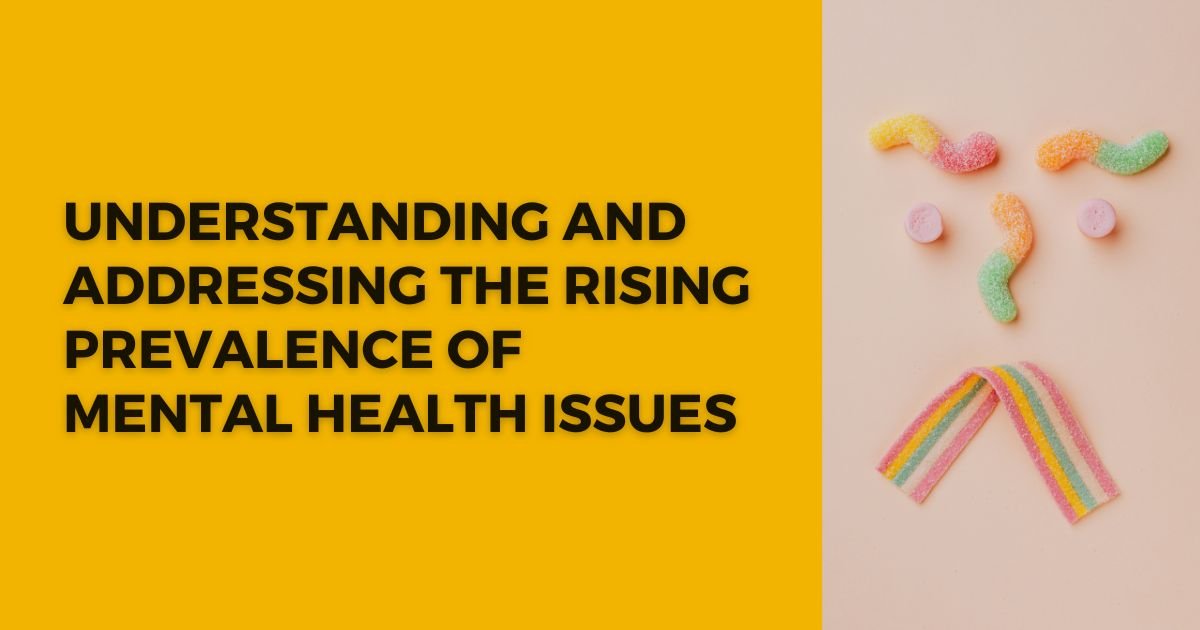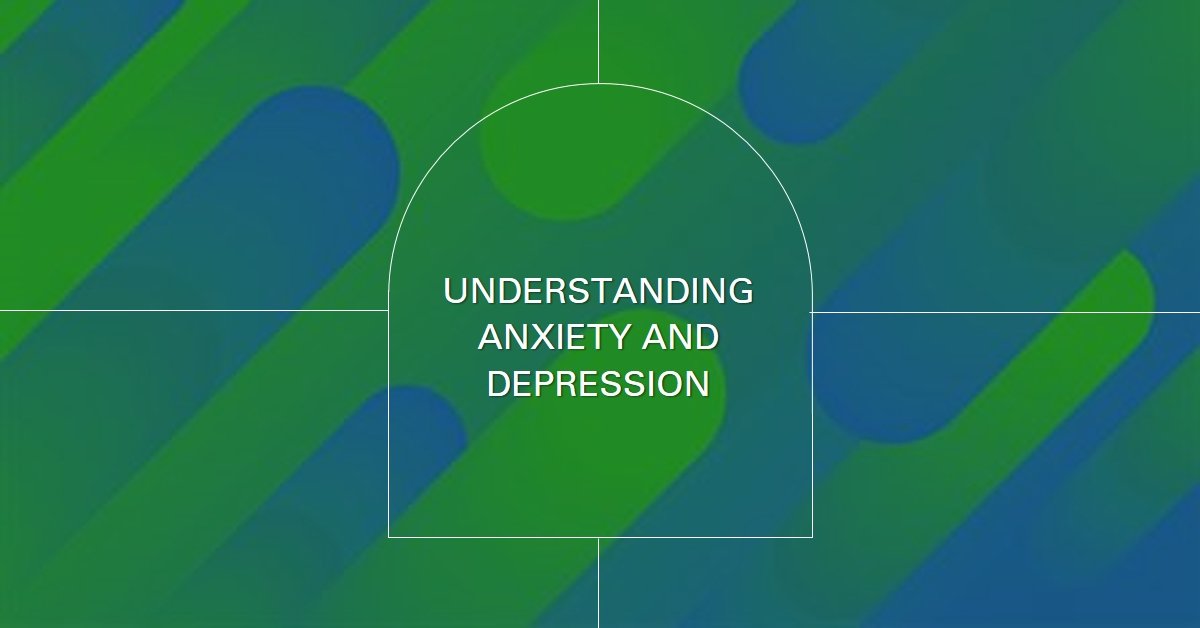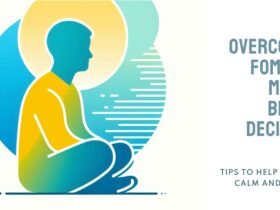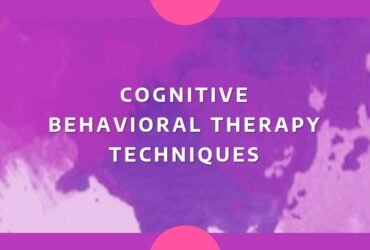Understanding the nuances between anxiety and depression is crucial for anyone navigating the complexities of mental health. Both anxiety and depression are common mental health conditions, but they differ significantly in their symptoms, causes, and effects. In this article, we’ll delve into the distinctive features of anxiety and depression, explore their impact on individuals, and discuss effective coping mechanisms.
Table of Contents
Defining Anxiety
Anxiety is characterized by excessive worry, fear, or nervousness that can interfere with daily life. Individuals with anxiety may experience physical symptoms such as restlessness, rapid heartbeat, and difficulty concentrating. It’s essential to recognize that anxiety is not a temporary feeling of stress but a persistent state that can affect various aspects of one’s life.
Defining Depression
On the other hand, depression is marked by persistent feelings of sadness, hopelessness, and a lack of interest in activities. Unlike anxiety, which is often linked to specific triggers, depression can manifest without an apparent cause. Individuals with depression may face challenges in maintaining daily routines and finding joy in previously enjoyable activities.
Overlap and Comorbidity
In some cases, individuals may experience both anxiety and depression simultaneously. This overlap poses challenges for diagnosis, as the symptoms can be intertwined. Distinguishing between the two is crucial for developing effective treatment plans tailored to the specific needs of the individual.
Causes and Triggers
Both anxiety and depression can stem from a combination of biological, genetic, and environmental factors. Understanding these causes helps in developing targeted interventions. Biological factors, such as imbalances in neurotransmitters, contribute to both conditions, while environmental triggers, such as traumatic experiences or chronic stress, can exacerbate symptoms.
Effects on Mental Health
Untreated anxiety and depression can have severe consequences on mental health. Chronic anxiety may lead to issues such as insomnia, digestive problems, and even panic attacks. Depression, if left unaddressed, can result in persistent feelings of despair, affecting the ability to function in daily life.
Coping Mechanisms for Anxiety
Managing anxiety involves adopting various coping mechanisms. Techniques such as deep breathing, mindfulness, and establishing a routine can be effective. Additionally, seeking professional help from therapists or counselors provides valuable support and guidance.
Coping Mechanisms for Depression
Similarly, individuals facing depression can benefit from coping mechanisms like regular exercise, engaging in social activities, and practicing self-compassion. Building a robust support system is crucial for navigating the challenges of depression.
Medical Interventions
In some cases, medication may be prescribed to manage symptoms. It’s essential to consult a healthcare professional to discuss the potential benefits and side effects of medications for anxiety and depression.
Therapeutic Approaches
Therapeutic approaches, such as cognitive-behavioral therapy (CBT) and psychotherapy, have shown effectiveness in treating both anxiety and depression. These therapeutic interventions aim to address underlying thought patterns and behaviors contributing to the conditions.
Impact on Relationships
Anxiety and depression can significantly impact relationships. Anxiety may lead to difficulties in communication and understanding, while depression may result in emotional withdrawal and decreased energy levels. Open communication and empathy are vital in supporting individuals facing these challenges.
Preventive Measures
Taking proactive steps to prevent anxiety and depression involves lifestyle changes, including regular exercise, a balanced diet, and adequate sleep. Building resilience by cultivating positive coping mechanisms can also contribute to mental well-being.
Seeking Professional Help
Dispelling the stigma surrounding mental health is essential for encouraging individuals to seek professional help. Consulting with a mental health professional allows for a comprehensive assessment and the development of a tailored treatment plan.
Support Systems
The role of family and friends in providing emotional support cannot be overstated. Creating a supportive environment involves fostering understanding, patience, and empathy for individuals dealing with anxiety or depression.
Conclusion
In conclusion, understanding the differences between anxiety and depression is crucial for promoting mental well-being. By recognizing the distinct characteristics, causes, and effects of these conditions, individuals can take proactive steps towards seeking help and implementing effective coping strategies. Mental health is a journey, and with the right support, individuals can navigate challenges and lead fulfilling lives.
FAQs
-
Can anxiety and depression coexist?
Yes, it is possible for individuals to experience both anxiety and depression simultaneously.
-
How do lifestyle changes contribute to mental health?
Adopting a healthy lifestyle, including regular exercise and a balanced diet, can positively impact mental well-being.
-
What is the role of medication in treating anxiety and depression?
Medications may be prescribed in some cases to manage symptoms; however, it is essential to consult a healthcare professional for personalized advice.
-
How can family and friends support someone with anxiety or depression?
Providing emotional support, understanding, and patience are crucial in creating a supportive environment for individuals facing anxiety or depression.
-
Is seeking professional help necessary for managing anxiety and depression?
Yes, consulting a mental health professional is essential for a comprehensive assessment and the development of a tailored treatment plan.
Remember, mental well-being is a journey, and knowledge is a powerful guide. To explore more articles that shed light on the intricacies of mental health and offer valuable insights, click here. Your path to greater understanding and resilience awaits, and there is a wealth of resources available to support you on this transformative journey.














Leave a Reply
View Comments